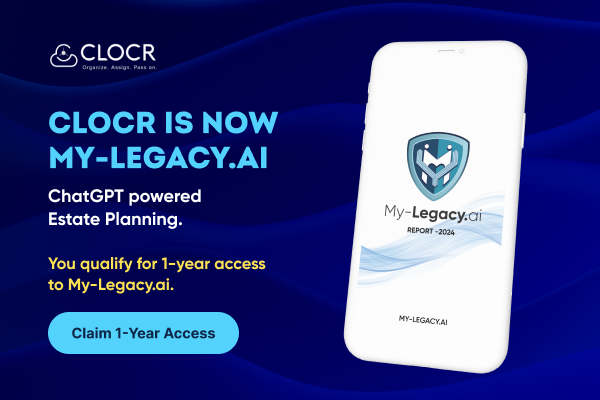What are Digital Assets? Everything that exists in the digital realm and has the right to be used is referred to as a Digital Asset. Digital Assets include your social media accounts, Cryptocurrency wallets, gaming accounts, subscription accounts like Amazon, Disney+, Spotify, and even the equipment you need to access these accounts, such as your laptop, iPad, and smartphone. Your Digital Estate is made up of all of these different forms of Digital Assets. NFTs have joined the list of Digital assets lately. So, what are NFTs exactly?
NFT Meaning
Non Fungible Tokens or NFTs point towards Digital Assets (or real-world assets) that hold some value. NFTs essentially provide a certificate of Ownership of different kinds of collectibles to people who create or buy NFTs of these collectibles. Beginning with CryptoPunks and CryptoKitties, the concept of NFT Art is what actually made NFTs popular.
Heads turned around when Beeple sold EVERYDAYS: THE FIRST 5000 DAYS for $69 million at Christie’s and made a new record. Since then collections like Bored Ape Yacht Club (BAYC), MAYC, and Doodle have been creating a buzz with their extraordinary sales. With celebrities investing in and selling NFT Art (Johnny Depp has recently released an NFT collection titled ‘Never Fear The Truth’), NFTs have become the new trend supported by Blockchain Technology (similarly how Cryptocurrency, a product of Blockchain Technology, became popular after Bitcoin’s value soared in 2017).
The need to create a system where money is controlled solely by their owners (and not any third party like banks or other financial authorities), gave a solution in the form of DeFi (Decentralized Finance). Cryptocurrency (which is an essential part of DeFi) became a tool in peer-to-peer digital transactions and sales of Digital Assets.
But there are many people who do not understand the technicalities involved in NFT or Cryptocurrency which is why to draw the attention and investment of an increasing number of people into this new realm of finance, new markets (NFT Marketplaces, Centralized Cryptocurrency Exchanges, Decentralized Cryptocurrency Exchanges or DEXs, Custodial and Non- Custodial Wallet platforms) popped up.
The success of platforms like OpenSea, Coinbase, and Binance reveals that people are interested to invest in new financial systems and trends. It may take some time for these systems to become mainstream completely. But you cannot deny that people already hold Digital Assets of personal and financial value and the investments in Digital Assets are only going to increase with time.
Planning for your Digital Assets reduces the stress that could be produced in the future if your assets are harmed or mismanaged. Estate Planning is one of the ways to plan for real-world assets, let’s dive into the subject and check if the process works for Digital Assets as well.
What is Estate Planning?
Estate Planning is the procedure to make arrangements for your assets so that they can be properly managed and distributed among your Beneficiaries after your demise (however, a Living Trust as a part of your Estate Plan helps you to manage your assets while you are able to). Estate Planning documents like Advanced Directives can help you instruct your family members on what medical help and procedures you approve of.
Estate Planning for regular physical assets can perplex anyone but when Digital Assets like NFTs and Cryptocurrency join in, the process becomes more complex.
How NFTs Impact Estate Planning?
- NFTs (or Cryptocurrency) can be accessed through passwords. It is important to leave detailed instructions about all the NFT Art collections, or NFTs of other collectibles you might own and which places or NFT Marketplaces they are currently stored in.
- You should leave clear instructions about which NFT you want to distribute to Beneficiaries and when should these assets be transferred.
- Probate is one of the things you might want to escape during asset transfer. What Is Probate? Probate is the process to administer an Estate after the owner’s demise. Probate incurs the risk of asset details going public (if Probate is granted then your Will becomes a public record). Nobody would want unknown people especially hackers to get details of their Cryptocurrency accounts and NFTs.
Instead of mixing both your real-world and Digital Assets in one Estate Plan, it’s smart to opt for a Digital Estate Plan.
What is Digital Estate Planning?
With Digital Estate Planning you can mold your wishes and strategies for the security and future of your Digital Assets in order to ensure that these valuable financial and personal assets are transferred seamlessly and securely to your family after you pass away or become immobile.
An inventory is established throughout the process of building a Digital Estate Plan, which stores the details of all your digital assets. When the login credentials for any asset are lost, this inventory comes in handy and minimizes mental and physical exhaustion in the process of recovering those credentials.
When it comes to personal Digital Assets, the loss can be emotionally devastating, but when it comes to financial assets like Cryptocurrency, a massive financial loss is unavoidable, affecting you and your family members who will rely on these assets for financial support after your death or immobilization. A Digital Estate Plan can help protect your virtual identity and funds from fraud and identity theft.
Digital Estate Planning would aid your family members in avoiding court conflicts over access to, distribution of, and management of your assets. With Clocr’s Digital Estate Solutions, you can ensure the safe and smooth transfer of your Digital Assets to your Beneficiaries after your demise or incapacitation.




